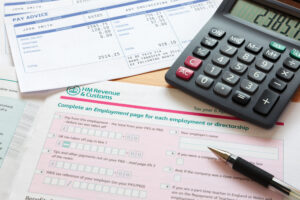A whopping £51 billion in credit card, overdraft and personal loan debts will be accrued by consumers who are struggling to meet the upcoming tax deadline.
This comes as nearly half of self-assessment tax payers struggle to keep up with payment dates, with the next payment due at the end of July likely to take some by surprise.
44% of self-employed Britons will have to rely on borrowing in order to make HMRC repayments after struggling to keep track of what they owe. At the same time, smart money platform, Credit Karma, found that rising costs of living have seen many come up short ahead of their next instalment.
Even for those with sufficient cash set aside, the deadline will cause longer-term financial disruption for months to come, as those eligible for self-assessment expect to take nearly four months to recover from an average outlay of more than £10,000.
This paints a bleak financial picture for the self-employed, as 43% will be forced to cut back on essentials like food to pay their bill. At the same time, more than half of those who have borrowed to meet repayments are worried about paying back debts, with billions due in interest to lenders.
With most feeling the strain of rising prices on their finances, taxes are becoming an unaffordable expense for many consumers. Another loophole to cover tax bills is using PayPal to cover stamp duty, now used by one in six homeowners. Where cash is needed to cover deposit payments, buyers are paying the outstanding balance on a credit card or through PayPal credit, in order to get on the property ladder.
And with relaxations of late payment fines and the end of COVID extensions, which have previously served as a lifeline for many of the self-employed, it’s important for consumers to proceed with caution when it comes to paying their next instalment.
Responding to the findings, Akansha Nath, Head of Partnerships at Credit Karma said: “The July deadline presents an unwelcome financial squeeze for many self-employed workers. This is one of the first self-assessment repayments due since COVID, where government support, or the opportunity to defer, is no longer available. While, at the same time, many are suffering the effects of a cost of living crisis.
“These tax repayments are not insignificant sums, and those who simply don’t have enough money in the bank to cover their bill next week should make sure they’re using credit responsibly – looking around for the best deals available, finding agreements where they can stay on top of repayments, and strengthening their credit score as much as possible to make credit cheaper and more accessible.”
Read more:
July tax bill creates £51 billion in consumer debt



























